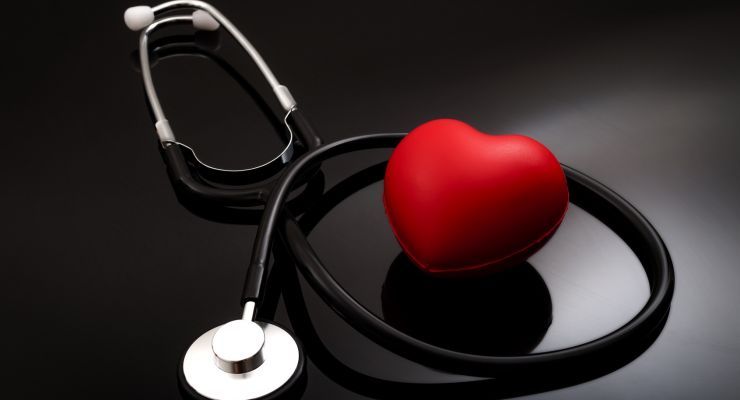Blood pressure is one of those silent things that you might not think about too often. Unless, of course, you have high blood pressure like millions of other Americans. It is estimated that over 85 million adults in this country alone suffer from high blood pressure. This is a problem that non-industrialized countries don’t seem to have. This is probably due to the fact that they are in many cases, consuming a diet indigenous to their area. A diet that is rich in unprocessed food.
What is blood pressure?
As the heart beats, it pumps the blood through your body to give it oxygen and energy. The moving blood pushes against the walls of the blood vessels. If your blood pressure is too high, it puts an added strain on your arteries and heart which could lead to a stroke or heart attack.
Understanding salt
Salt is simple, comprised of mostly sodium and chloride, both of which may very important roles in the body. They are involved in nerve conduction, muscle contraction, digestion and blood pressure.
When there’s too much sodium in the blood, it pulls water into the blood vessels, which increases the volume of blood inside the blood vessels. When this happens, blood pressure increases.
However, keep in mind that we need salt in order to stay alive. Not having enough salt in the diet can lead to dangerous conditions such as hypertension – the very thing that too much salt can encourage. Moderation is the key.
Foods that can increase your blood pressure
What you eat is incredibly important to all aspects of your health, even your blood pressure. Here are a few foods that you should definitely keep out of your diet if you already have hypertension ( high blood pressure), or if you want to avoid developing it in the future.
Note: The last two are actually the most important to eliminate from your diet
Dining out
According to the FDA ( Food and Drug Administration), Americans eat at least one-third of all of their calories away from the home – generally in restaurants. While it is a law that restaurants provide calorie information to patrons, other facts such as sodium, sugar, fat content etc.. must be provided to consumers in writing if requested. You might be surprised to find out just how much sodium is in some of your favorite dishes. As an example, the flour used to make a flour burrito at Chipotle includes 690 mg of sodium. There is even sodium in your favorite flavored coffee drink at Starbuck’s. Always be on the lookout for low sodium options when dining out.
Processed foods
Eating out is not the only place where you can get into trouble with sodium. The majority of foods in the supermarket are also laden with blood pressure increasing sodium. It is very important to check labels as up to 75 percent of the sodium that we consume is hidden in foods such as soups, condiments, canned food, prepared foods, and mixes. It is important to learn how to read labels. Be aware of words like “soda” and “sodium” and the symbol “Na”. These are all words that show that the food contains sodium. In addition, these refined foods often contain enormous amounts of processed sugar – a no, no for anyone seeking health.
Dairy
You might think that dairy products are good for your but they actually contain quite a bit a sodium. One cup of low-fat milk contains 100mg of sodium. Cheese can also be high in sodium so be careful when you chose cheese. Look for cheeses that have less than 140mg of sodium per serving such as mozzarella. As far as the milk is concerned, think about switching to a low sodium, dairy alternatives like cashew or almond milk.
Foods containing added sugar
While you may not immediately be able to see the connection between sugar and high blood pressure, it exists. According to a study published in the British Medical Journal, foods high in sugar, especially fructose, can cause an increase in blood pressure. According to this report, people who consume one-quarter of their daily calories from added sugar have three times the risk of heart disease when compared to those who consume less than 10 percent of their calories in added sugar. In fact, diets high in added sugar – or refined carbohydrates are more likely to have a detrimental impact on blood pressure over foods containing salt.
Energy drinks
I have never been a fan of these caffeine and sugar-laden drinks. When the Mayo Clinic conducted a study, they found that energy drinks cause both systolic and diastolic blood pressure to increase by up to 6.4% after consumption. It is the burst of caffeine combined with the sugar that jolts your blood pressure. In addition, some of the most popular energy drinks also contain stimulants and supplements that also increase blood pressure.
The best option
The best option when it comes to regulating your blood pressure is to consume whole foods and skip anything processed. Eat a variety of fruits and vegetables along with healthy sources of protein from seeds, nuts, eggs and high purine meat. Stay clear of processed foods and foods containing added sugar. For cooking and spicing up your food, use salt that is unrefined and contains minerals such as Real Salt.
In addition, make time for regular exercise, quit smoking, drink alcohol only in moderation, get plenty of sleep and learn to manage stress.
-Susan Patterson

